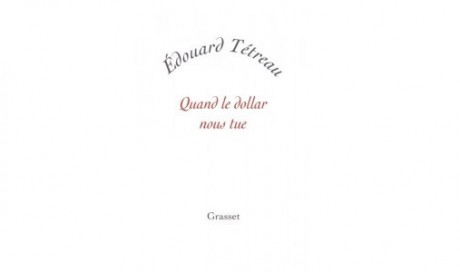- 96 Views
- 0 Comment
- No tags
Between the BNP Paribas issue, the NSA scandal, the quasi-monopoly of the internet, and the ambiguity of the transatlantic treaty, our best ally has hit us hard in the past few months.
“My God, protect me from my friends,” said Voltaire. In two days, as we celebrate the seventieth anniversary of the landings on Normandy, it is a good time to evaluate the quality of our alliance and friendship with the United States.
This alliance and friendship has been unfailing. Which other country would have been able to send so many of its men to liberate us from our own problems and weaknesses? At the same time, for which other country would France nearly bankrupt itself, to the point to overthrow its head of state a few years later, such that the United States could obtain independence in 1776? It has been an unfailing friendship and alliance, but it has become truly problematic in 2014.
We are quite surprised by the favorable treatment the US is showing to countries that never planned on being their long-term allies. Where to start? The underground deal, currently in negotiations, with Iran, in which the US is turning its back on its decades-long alliance with Saudi Arabia and its long-term ally, Israel? The contamination of the Western finance sector during the sub-primes crisis? Edward Snowden’s revelations about the systematic spying practices used on US allies? The stealing of Europeans’ personal data organized by the American internet giants, with complete disregard for private life or intellectual property? Or, closer to us, attorney general Eric Holder’s threat to make BNP Paribas pay 10 billion dollars, because it completed transactions in dollars with countries not authorized by the American government?
The French banks are used to being “blackmailed” by American judiciary authorities, particularly since the Executive Life matter in California. But, today, the string is too long: the Obama administration, who promised so much and has since 2008 delivered too little in terms of Wall Street managerial practices is now trying to redeem itself with one of the principal European financial institutions. But they have the wrong target. It is not in Europe but rather in the US that the average manager’s salary in the fifteen principal banks was 13 million dollars in 2013. It is in the US that these same fifteen banks (Goldman Sachs, Wells Fargo, Citigroup, Morgan Stanley, Bank of America, and JP Morgan, to name a few) together paid a paltry fine of $48 billion USD in 2013 for having lied to their clients and violated American law. Finally, it is in the US that these same banks always rearm, with complete impunity, the finance firms with LBO at levels of leverage that will soon reach the peaks of 2007 –foreshadowing a new global crash on the horizon of eighteen to twenty four months.
What can we do to protect ourselves from the significant risks to which the US exposes its political allies and European economic partners? First, there are the industrial operations, such as General Electric’s offer for Alstom. It is difficult to imagine this deal finding much success, given the American agenda’s apparent open hostility to French interests. Then, there are the initiatives that should be taken by European groups operating on markets denominated in dollars – notably aerospace, oil, gas, raw materials and agriculture. The BNP Paribas affair indicates, among other things, at what point the dollar became a dangerous currency and a proven legal insecurity for those using it for trade in Europe and emerging countries, due to its complete dependence on the American domestic political agenda. From this perspective, and also because it is backed by a more rigorous central bank than the Fed, the euro deserves to quickly become the only trusted currency on the global markets.
Finally, there are political initiatives that future European executives, led by Jean-Claude Juncker, could put into practice to protect European interests against the troubling game of the Obama administration. These initiatives deserve to be explained in two priority documents: First, the transatlantic treaty, which cannot be negotiated in a climate of American hostility and should be postponed and restarted on a clearer, larger, and more stable base. Second, the characteristic abuses by the American internet giants (Google in particular) of their dominant position. As CEO Mathias Döpfner of publisher Axel Springer confessed in his remarkable April 22 open letter to Eric Schmidt, “We are afraid of Google.” Who in Europe today is not worried by Google’s 90% market share in search engines and its entrance into other monopoly positions or the exorbitant privilege of the dollar in global markets? Who is not concerned by the nervousness of American diplomacy, or by the political agenda of U.S. Attorney General Eric Holder? Seventy years after landing on Normandy, twenty-five years after Tiananmen, it is not Xi Jinping’s China that worries Europeans, but our ally and friend, Barack Obama’s United States. Like the European Union, the U.S. must change quickly to avoid alienating its longtime ally and friend.
OUR RECENT
WORKS
-
20000 Milliards de…Book
Warning: Invalid argument supplied for foreach() in /home/edouardt/www/wp-content/themes/edtetreau/includes/part-portfolio.php on line 54
Warning: Invalid argument supplied for foreach() in /home/edouardt/www/wp-content/themes/edtetreau/includes/part-portfolio.php on line 54
Warning: Invalid argument supplied for foreach() in /home/edouardt/www/wp-content/themes/edtetreau/includes/part-portfolio.php on line 54








